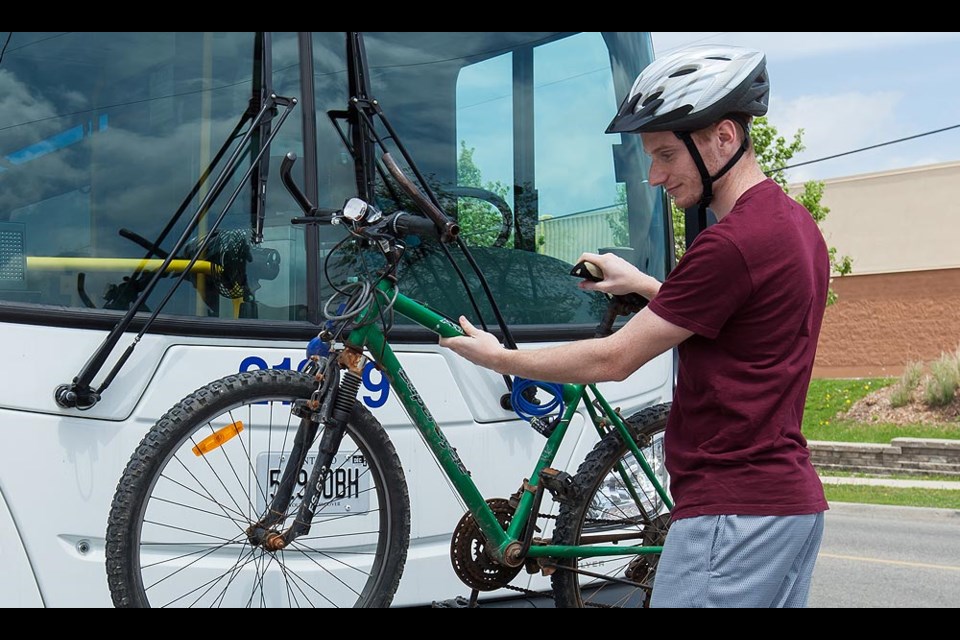Ever wonder how many bikes get abandoned on public transit each year? It’s more than you think.
All across the region, bikes are being left on public transit leaving GRT with the task of finding a new home for them so they can live to ride another day.
Matt Landowski is the assistant manager of transit passenger amenities and maintenance for GRT and oversees the program designed to give unclaimed bikes a second chance.
“This is a really great program, we can actually give these bikes to people who will need them and they don’t just end up in a landfill,” said Landowski.
Every year around 100 bikes are left on buses and eventually find their ways into new hands. Some of the higher-end bikes are auctioned off and the money is donated to charity.
Every bike that gets left on a bus in Cambridge is held at the Ainslie Terminal for about a month in hopes the original owner will come and grab it. All of the bikes are run through police searches to determine if the bike has been stolen.
Despite their efforts to determine who left the bike, Landowski said the claim rate is a lot lower than you’d think.
After a month sitting in the stations, they are shipped to GRT’s main garage on Strasburg Road in Kitchener. It's there where all of the bikes are tagged, categorized and put on a list to be picked up by community partners who redistribute them throughout the region.
“Our goal is to get them to the not for profit. Churches are a good one and we also have been working with Recycle Cycles with the Working Center. They'll try to get them to people who are in need of some kind of transportation,” said Landowski.
WMB Church in Kitchener is one of the community partners that the GRT gives the bikes to. Mary Ellen Tierney is a community pastor at the church and determines who is approved to get one of the unclaimed bikes.
“It's important to them, especially if they're refugees, they come and they're put in housing around the region. Sometimes the housing is on a bus route and sometimes it's not, so it's very valuable for them to get to ESL classes, to get to work and to explore their new home,” said Tierney.
WMB has donated over 200 bikes across the region to those who are unable to get a bike on their own. They partner with GRT, police services and also take donations from the public for their charity bike program.
Sometimes the bikes are left in unusable condition. When this happens MWB lets people come and strip them for parts and will even ship them to organizations in the community that teach people how to fix their own bikes.
Both GRT and WMB think this is just a small action that can have such a big impact in people's lives.
These bikes would otherwise end up in a landfill, but now have the chance to roll out of their garage and onto the road once again, said Landowski.
According to Tierney, not only does it help set the tone for those leaving a hostile situation in another country, but it helps when you are greeted with open arms.
“The bikes that do go to these newcomers to Canada like refugees or international students just get the biggest smile on their faces, it's a bike with a smile,” she said.



